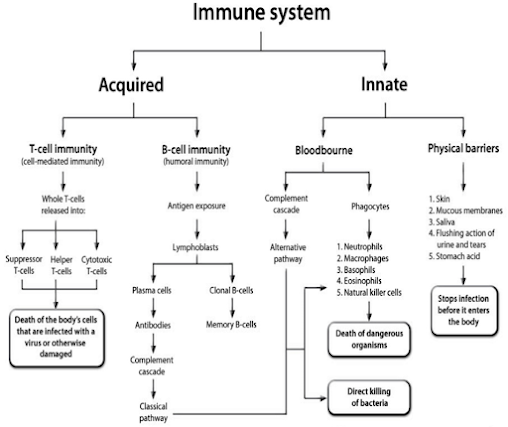IMMUNITY

IMMUNITY The immune system is a system of biological structures and processes within an organism that protects against disease. To function properly, an immune system must detect a wide variety of agents, from viruses to parasitic worms, and distinguish them from the organism's own healthy tissue. TYPES OF IMMUNITY Immunity is divided into two divisions Non – specific (innate immune system/inherent) Specific/adaptive immunity which gives acquired immunity. NON SPECIFIC/NATIVE/INNATE A portion of immunity resulting from general processes rather than processes directed at specific diseases or organisms. This include resistance of skin to invasion by organisms, destruction by acid secretion by stomach and digestive enzymes organisms swallowed, phagocytosis of bacteria and other invader by leukocytes and cells of the tissue macrophage system. SPECIFIC OR ADAPTIVE OR ACQUIRED Acquired immunity is the type of immunity which has sp...